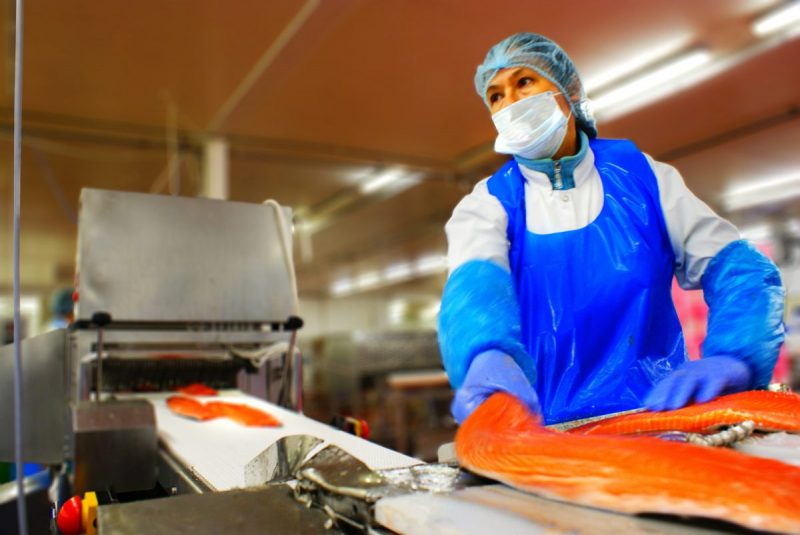COVID-19 – Canada reassures fisheries, aquaculture sectors
“I am committed to providing the Canadian fisheries and aquaculture sectors the support needed so they can continue to provide the world with sustainably-sourced, high quality, high value, fish and seafood.”
By Fabian Dawson
SeaWestNews
Bernadette Jordan, Canada’s Fisheries Minister says she is committed to supporting the Canadian fisheries and aquaculture sectors so they can continue to provide the world with sustainably-sourced seafood amidst the current coronavirus pandemic.
“I am committed to providing the Canadian fisheries and aquaculture sectors the support needed so they can continue to provide the world with sustainably-sourced, high quality, high value, fish and seafood,” she said in a statement.
“I am in regular contact with many harvesters, processors, and representative groups to hear their concerns, understand the economic challenges this pandemic pose, and ensure their voices are represented.”
“The unpredictability of this situation continues to be the only thing we can take as a certainty. Fishing isn’t an easy way of life at the best of times. The sector has faced tough times before – and it will again. But much like those who work in our fisheries, the sector is truly resilient. I have confidence the market will rebound and the Government of Canada will be there to help every step of the way.”
“Rest assured, Fisheries and Oceans Canada will continue to deliver on its mandate during these times. Fisheries will continue to be managed. Licences will continue to be issued. Our Conservation and Protection officers will continue to enforce the Fisheries Act,” said the minister.
Canada’s wild and farmed seafood industry – which exported over five billion U.S. dollars of fish in 2018 – is reeling as the coronavirus fallout spreads in markets around the world.
Domestic consumption – valued for the average Canadian household at about 219 Canadian dollars on seafood – has also been impacted.
On Canada’s East Coast, the Fish, Food and Allied Workers Union (FFAW) said while there is no doubt that the fishing season will be impacted by this pandemic, the extent of the impact remains unclear as the situation evolves quickly, from day to day.
“FFAW is calling on the federal government to extend Employment Insurance benefits for all workers impacted by COVID-19, waive wait-times on claims, and increase the income replacement from 55% to 90%,” the union said in a note to its 15,000 members.
On Canada’s West Coast, Christina Burridge, executive director for the BC Seafood Alliance, said the impact is especially being felt in the high-end demand for halibut, geoduck and crab fisheries.
“These generally go to white-table cloth establishments, many of which are closed at this time,” she said.
“We think that the retail demand in North America will remain reasonably good as long as the border stays open.”
Burridge said the immediate concern is for the safety and well-being of workers in the industry, especially in processing plants.
“We are facing shortages of sanitation supplies required for our workers at the plants and we hope government agencies can step in to help…but it’s a difficult situation especially when most of the government is working from home,” she said.
In 2018, B.C. exported $1.4 billion in seafood products to 78 markets. Consistently ranked as the 4th largest farmed Atlantic salmon producer in the world, farmed salmon continues to be B.C.’s most valuable seafood export with a 12 per cent share of total agrifood and seafood provincial export sales in 2018.
After Atlantic salmon at $541 million, the highest value seafood exports were $159 million in crabs; $103 million in hake; $56 million in Sockeye salmon; and $55 million in geoduck clams.
The U.S. and China remain B.C. primary export markets for B.C.’s farmed salmon. While the demand from China has slowed down, the U.S. markets remains strong after U.S. President Donald Trump extended a European travel ban earlier this month.
Cargo remains exempt from the ban, but the number of trans-Atlantic flights has dropped as a result, significantly reducing bellyhold cargo capacity from the market, according to Air Cargo News.
The demand is changing said Shawn Hall, spokesman for the B.C. Salmon Farmers Association (BCSFA).
“As restaurants close demand on that front is slowing, while retail demand is increasing as families look for healthy meals to cook at home…We are grateful we can play a role in ensuring the food supply remains robust during this time,” he said.
B.C.’s salmon farmers have also reduced on-farm staffing to essential levels, and added heightened hygiene and sanitization practices to existing bio-security measures taken on farms. They have suspended all farm tours at this time.
“Our members are prepared for and committed to continuing to supply safe, healthy and sustainable fish and seafood products to Canadians and our international customers during the COVID-19 pandemic,” said Paul Lansbergen, President of the Fisheries Council of Canada.
“Live, fresh, frozen, canned and other shelf-stable items will remain available and are nutritious choices for consumers.”
“As we move forward in managing and mitigating the impact of this virus on our population and economy, our association stresses the need for industry to have a seat at the table as our government discusses solutions,” said Lansbergen, adding the council appreciates the government’s commitment to ensuring seafood businesses continue to operate without undue disruptions.
(Image of a fish processing plant courtesy of Mowi)

